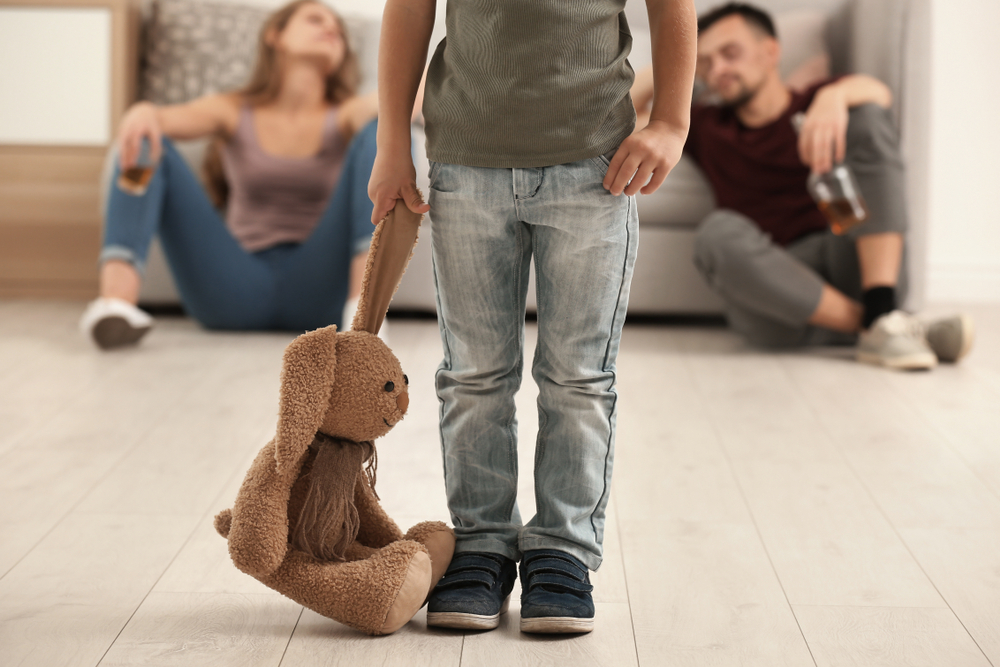
Africa Studio/Shutterstock
.
It’s no secret the foster care system is completely broken. Yet, there is a way to fix it.
We must find and fix the root of the problem. Until then, the problem will continue to grow.
My fix is to place biological parents in foster care, not children. Let me explain how I came to this solution.
Should children be placed in foster care?

Jamie Schwandt
Why do we assume a child should be placed in foster care if a parent is no longer capable of caring for a child? Let’s examine the assertion for a moment.
Assertion: Children should be placed in foster care if parents can no longer care for them.
What would happen if we changed “should be” to “should not be”?
Opposite: Children should not be placed in foster care if parents can no longer care for them.
For those who hold firm to the assertion (children should be placed in foster care if parents can no longer care for them), let me pose a few questions:
Why must this assumption be true?
What must exist for this assumption to be true?
I would argue that you would need solid evidence that removing a child created a better life for the child and parents. I would also argue that you would need solid evidence that a child was placed in a caring and protective environment; yet, you would also need to prove that the parents became better parents as well.
If the assumption is wrong, would this alter your line of thinking?
For example, if I were to show you that foster children typically end up back in foster care or are more prone to poverty and incarceration, would this change the way you think?
Now let me ask you a few more questions regarding the removal of a child.
- Why remove the child? Is it the child’s fault?
- What happens to the parents when the child is removed?
- How confident are you that the parents will improve as parents once the child has been removed? Will they be better parents when the child is returned to them?
Innovation genome
Let me discuss a tool I used assisting me with my idea. I first came across this tool after reading “The Net and The Butterfly: The Art and Practice of Breakthrough Thinking,” by Olivia Fox Cabane and Judah Pollack. They discuss a tool developed by Autodesk Innovation Genome called The 7 Essential Innovation Questions. Here is how I used this tool:
- What could we look at in a new way?
Mentorship programs for parents could be a new way to look at this issue. If we were to look at this problem in a more holistic way (and not through the lens of foster care) would we see this differently?
For example, if you were an alcoholic or drug addict and abused your child, do you think handing your child off to a stranger for a limited amount of time would solve your problem or improve you as a parent or person?
- What could we use in a new way or for the first time?
We use the foster care system as a way to provide a child a safe and temporary home. What if we used foster care to provide parents a safe and temporary home to learn how to be better parents?
- What could we move, changing its position in space or time?
Here we could literally move the parents to a home with other parents.
- What could we interconnect, for the first time or in a new way?
If we were to move parents (not children) into foster care, we could interconnect parents who need assistance with seasoned and successful parents. This could create a powerful network of parents for challenged parents to turn to when in need of assistance or advice.
- What could we alter, in terms of design and performance?
We could alter the performance of challenged parents by allowing them to learn from successful parents. After all, we don’t know what we don’t know. For example, do challenged parents have any idea of how to be good parents?
- What can we make that is truly new?
We could literally create and make a new life for families … a life filled with opportunities for success.
- What can we imagine that would create a great experience for someone?
Simply imagine how this crazy idea just might work!
The root of the problem
The child’s parents are the root of the problem. Let me first address a couple important questions.
What happens to biological parents when a child is removed from their home and placed in foster care?
Essentially nothing.
Do they receive any type of rehabilitation service or are they even required to improve?
No.
The problem here is not that much different than what we find in the prison system. It is similar to locking up parents and leaving them behind bars for a period of time expecting them to magically improve. We then place their children back with them hoping they will be better parents. However, this almost never happens and the child ends up back in foster care.
The solution is rather simple. We must coach, rehabilitate and educate biological parents, providing them every opportunity to succeed as parents.
So, instead of simply removing a child and wishing for the best, let’s do the following:
- Remove the parents, not the child.
- Place the biological parents in foster care.
- Match parents with successful foster parents.
- Parents move in and live with foster parents.
- Coach and rehabilitate parents until they are ready to take back their children.
Seems logical, right? However, this also assumes the parent is not a convicted sex offender, a felon or worse. It assumes the parent is capable of improving. For those parents who are not capable, this idea will not work and they should simply remain behind bars. In my opinion, they have lost their right to be parents.
What skills do parents need?
In “Development of Parenting Skills By Implementing Strong Families Program,” researchers found the following:
“To be a parent is a challenge that involves creativity, warmth, and abilities.”
In addition, they found that the harmonious development of the child’s personality and their growth as an adult depends on their parents, family, school and other environmental factors.
Researchers in this study remarked,
“The education of children is not a spontaneous and random action; parenthood is a mixture of joy and struggle for everyone and no one can claim to hold all the answers to the problems of raising a child. A child learns by and through interaction with parents, adults, and peers.”
If this idea is going to work, parents should receive the following education (at a minimum) while living with a foster family:
- Financial awareness
- Ability to provide a safe and secure environment
- Patience
- Communication skills
- Discipline
- Trauma and behavioral skills
- Ability to show love
- Ability to deal with failure
- Attachment and trust
- Persistence in finding resources for children and families.
For an extensive examination of these skills, visit the North American Council on Adoptable Children.
Lastly, we must find a way to solve the problem at the root. Here, it is the biological family. We have to stop removing children while failing to educate and rehabilitate parents.
How can we expect this broken system to improve if we fail right from the start?
What’s worse is that it will continue to fail until we build a network of support and allow parents to benefit from the wisdom and experience of other families.
We must find ways to uncover the unmet needs that exist in families. In my opinion, this idea will do just that.
Jamie Schwandt, Ed.D., an author and former foster child, is a TV show host, motivational speaker, Lean Six Sigma Master Black Belt, statistics professor and a major in the U.S. Army. He is the author of the books “Finding Your Hero” and “Succeeding as a Foster Child.”































